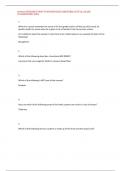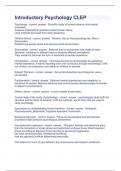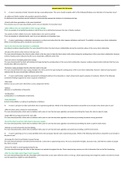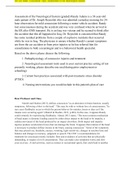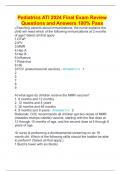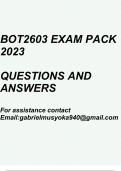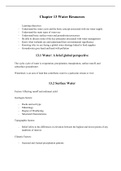Samenvatting
Summary lecture notes (for revising) International Development (6442HID)
- Instelling
- Universiteit Leiden (UL)
This summary contains an overview that is perfect for revising for your exam or resit for International Development. It contains the most important concepts for each lecture and the key concepts.
[Meer zien]





